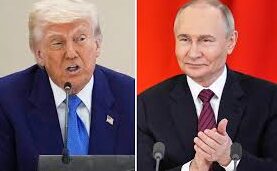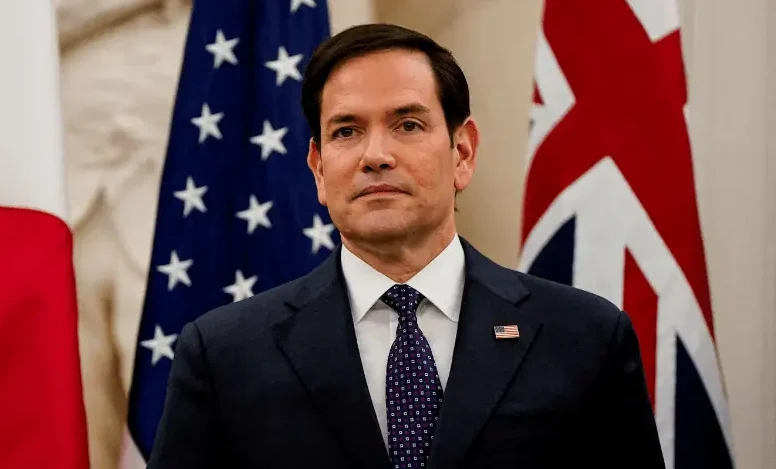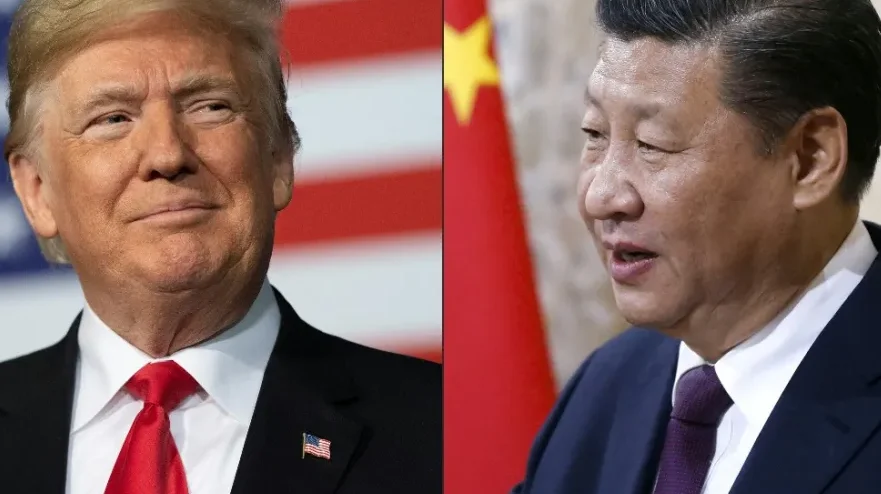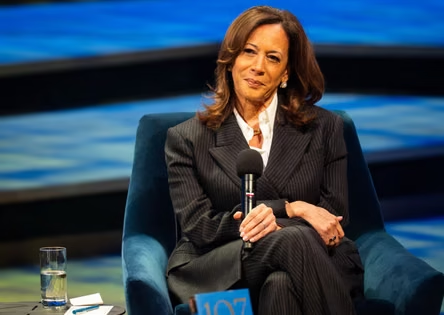A Kremlin aide has confirmed that U.S. President Donald Trump and Russian President Vladimir Putin have agreed to meet “in the coming days,” raising hopes for direct talks aimed at ending the ongoing war in Ukraine.
The announcement follows Trump’s statement earlier this week that there is a “good chance” he will soon meet personally with both his Russian and Ukrainian counterparts to explore ways to end the conflict. A self-imposed deadline from Trump, aimed at pushing Russia toward a ceasefire or facing tougher sanctions, is set to expire on Friday.
The potential summit between Trump and Putin comes on the heels of a meeting held Wednesday between Russian President Putin and U.S. envoy Steve Witkoff. Witkoff, who has already made four trips to Moscow, remains cautiously optimistic despite the lack of any major breakthrough from previous visits.
When asked during a White House briefing Wednesday night whether a three-way summit involving Ukraine’s President Volodymyr Zelensky, Putin, and himself had been agreed upon, Trump responded that there is a “very strong possibility” it will happen.
Kremlin aide Yuri Ushakov said the idea of a trilateral summit was mentioned during the Moscow talks but added that Russia, according to state media, has so far “left the option open without comment.” However, he did confirm that Trump and Putin have agreed on a location for their upcoming bilateral meeting, with further details to be disclosed later.
Zelensky signaled his openness to such a summit in a post on X (formerly Twitter), writing, “We have repeatedly said that real solutions can only be found at the leadership level.” He emphasized the importance of setting clear timelines and defining the scope of the talks.
An official close to Putin who advises on foreign affairs said that all parties have begun working on the logistical and diplomatic details of the proposed summit.
Last month, Trump acknowledged in a BBC interview that after Witkoff’s earlier visits, he had been “disappointed” by Putin despite initially hopeful signs. Speaking to reporters on Wednesday, Trump adopted a more measured tone: “I wouldn’t call it a breakthrough… We’ve been at this for a long time. Thousands of young people are dying… I’m ready to end it.”
The Kremlin released a carefully worded statement about Witkoff’s recent visit, describing the talks as “constructive” and noting that both sides had “exchanged signals.”
Zelensky, meanwhile, said he had discussed Witkoff’s trip with Trump and indicated that European leaders are also engaged in the discussions.
The Ukrainian president warned that Moscow might consider peace seriously only if its financial resources begin to dwindle. Despite Trump’s looming deadline and threats of more severe U.S. sanctions, Russia has continued its large-scale aerial attacks on Ukrainian targets.
In response to growing pressure, Trump signed an executive order on Wednesday imposing a 25% tariff on Indian imports of Russian oil—a significant move aimed at tightening economic pressure on Moscow.
Earlier this year, prior to assuming office in January, Trump had boldly claimed he could end the Russia-Ukraine war within a single day. However, the conflict has escalated since then, with Moscow adopting an increasingly defiant tone.
Three rounds of talks in Istanbul between Russian and Ukrainian negotiators, held more than three years into Moscow’s full-scale invasion, have failed to produce meaningful progress toward a peace deal.
Russia’s military and political preconditions for a ceasefire remain unacceptable to both Kyiv and its Western allies. The Kremlin has repeatedly dismissed Kyiv’s calls for a direct meeting between Zelensky and Putin.
Meanwhile, the U.S. on Tuesday approved an additional $200 million in military aid for Ukraine, which includes support for drone production—a signal that Washington remains committed to backing Kyiv as diplomatic efforts continue






